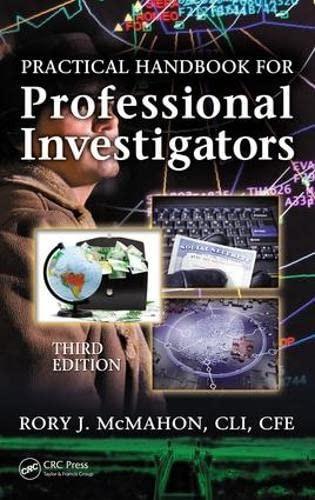Anastaska Кузнецова's Key Ideas from Practical Handbook for Professional Investigators
by Rory J. McMahon CLI CFE, Randy Dickson
Ideas, facts & insights covering these topics:
5 ideas
·376 reads
7
Explore the World's Best Ideas
Join today and uncover 100+ curated journeys from 50+ topics. Unlock access to our mobile app with extensive features.
Guidelines
An investigator is a professional researcher who uses observation, inquiry, examination, and experimentation to obtain evidence and factual information upon which sound decisions can be made. In order to achieve success as an investigator, certain basic guidelines must be observed:
• Ask many questions when seeking information. Of ten, this means repeating questions in order to uncover discrepancies and following up on initial questions with more detailed ones. You can never gather too much information. It is easy to eliminate nonessential information later on.
12
93 reads
Guidelines
• Recognize that suspects, criminals, and other subjects of investigation come from all walks of life and are represented by all races, both sexes, and an endless variety of lifestyles.
• When investigating the crime scene, do not commit yourself to the guilt or innocence of anyone at the scene whom you may question. Remember, your purpose is to gather facts; judgments will come later.
12
83 reads
Guidelines
• Do not be overconfident. Be certain that you have gathered all the information. Before you conclude the investigation, ask yourself, “Is there more information I should attempt to obtain? Have I overlooked anything that could make a difference in the outcome of the investigation?”
• Do not jump to conclusions.
• Never take things for granted—make no assumptions about how much information is needed before you begin searching. False assumptions of ten lead to the loss of valuable information and evidence.
12
72 reads
Guidelines
• Work with evidence you find at the scene. Examine all evidence carefully—pieces of paper, documents, tools, fragments of cloth, or personal items belonging to a possible suspect or other person involved in the incident that you are investigating. Any physical evidence can provide an important investigative lead.
• Develop informants and sources of information before you need them. No investigator can get along without sources, because they can provide shortcuts to many investigative problems.
12
60 reads
Guidelines
• Develop informants and sources of information before you need them. No investigator can get along without sources, because they can provide shortcuts to many investigative problems.
12
68 reads
IDEAS CURATED BY
Discover Key Ideas from Books on Similar Topics
6 ideas
Bloodstain Pattern Analysis with an Introduction to Crime Scene Reconstruction, Third Edition
Tom Bevel, Ross M. Gardner
4 ideas
The Causes and Cures of Criminality
Hans J. Eysenck, Gisli H. Gudjonsson
14 ideas
Research Methodology
Ranjit Kumar
Read & Learn
20x Faster
without
deepstash
with
deepstash
with
deepstash
Personalized microlearning
—
100+ Learning Journeys
—
Access to 200,000+ ideas
—
Access to the mobile app
—
Unlimited idea saving
—
—
Unlimited history
—
—
Unlimited listening to ideas
—
—
Downloading & offline access
—
—
Supercharge your mind with one idea per day
Enter your email and spend 1 minute every day to learn something new.
I agree to receive email updates
